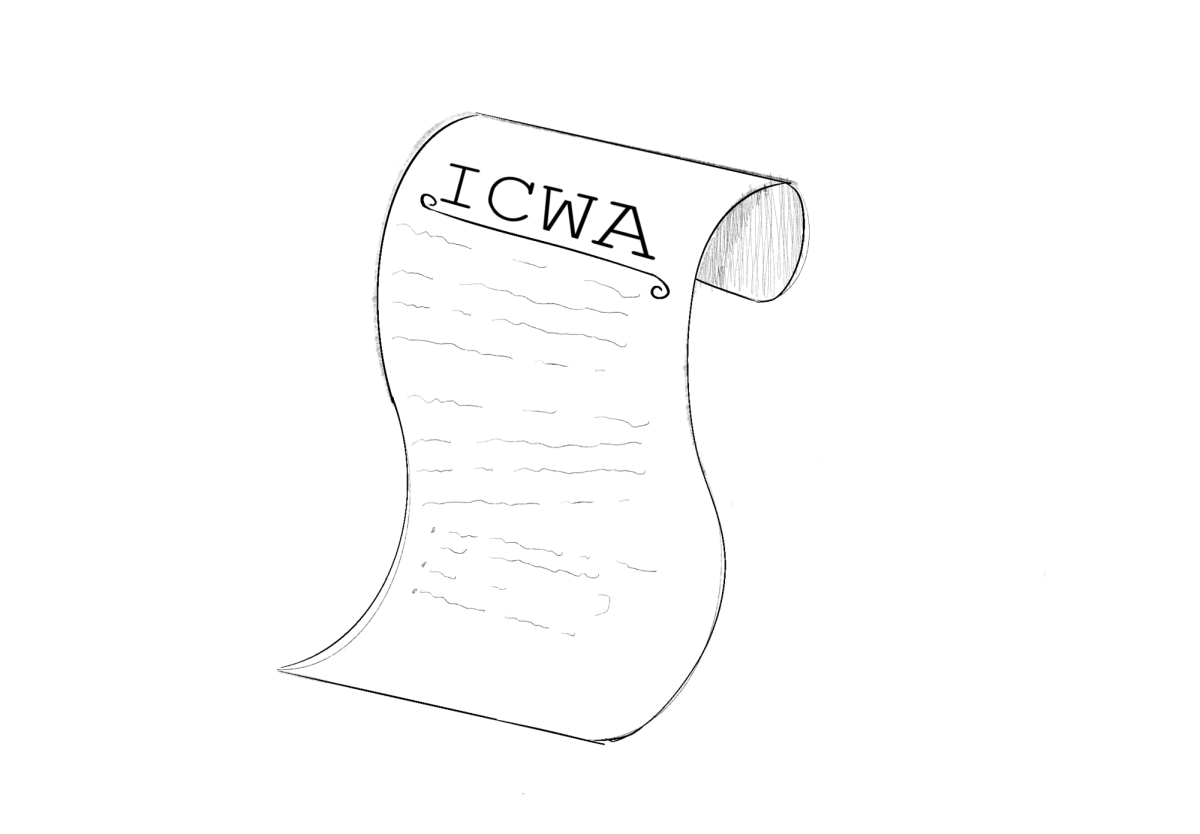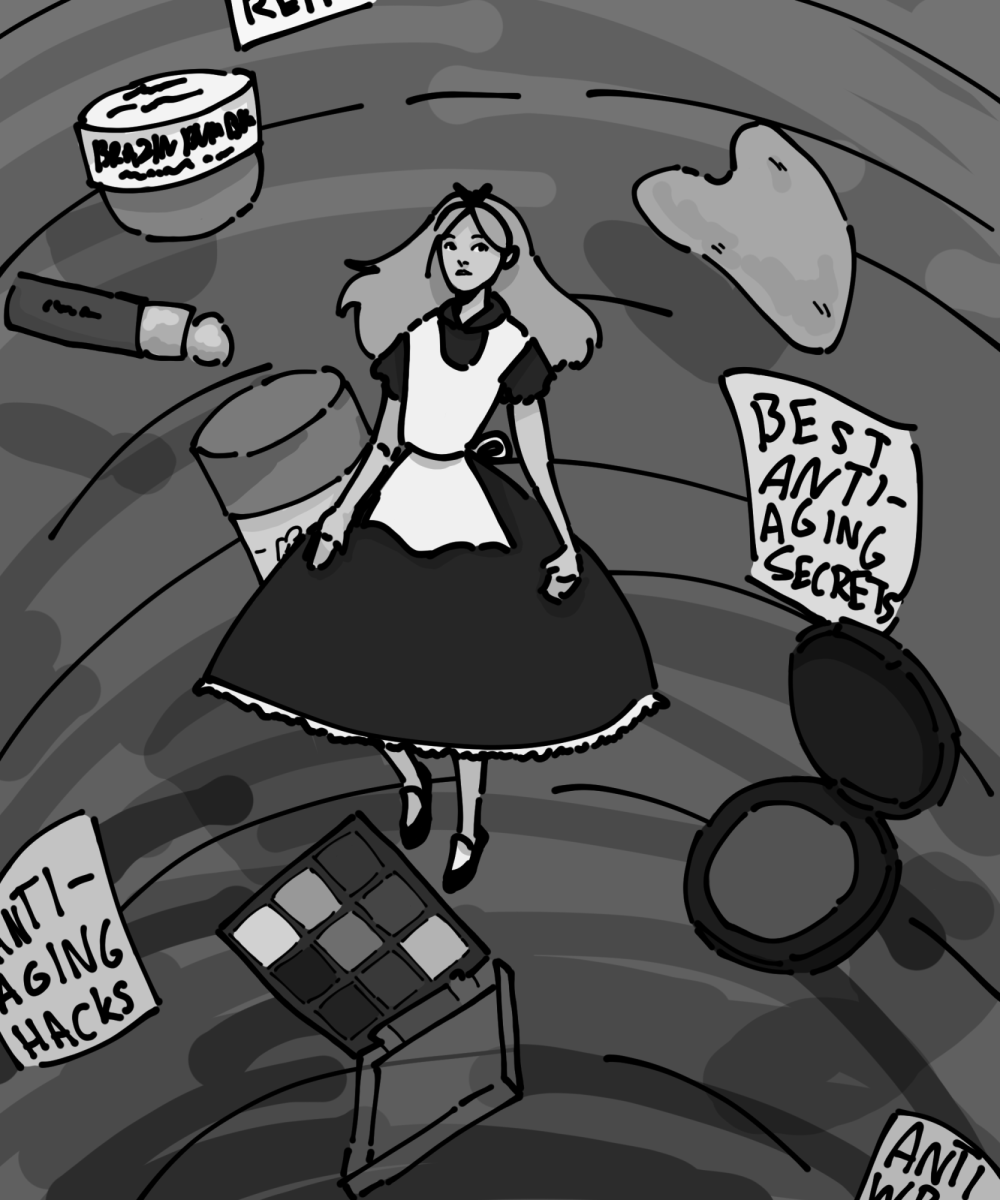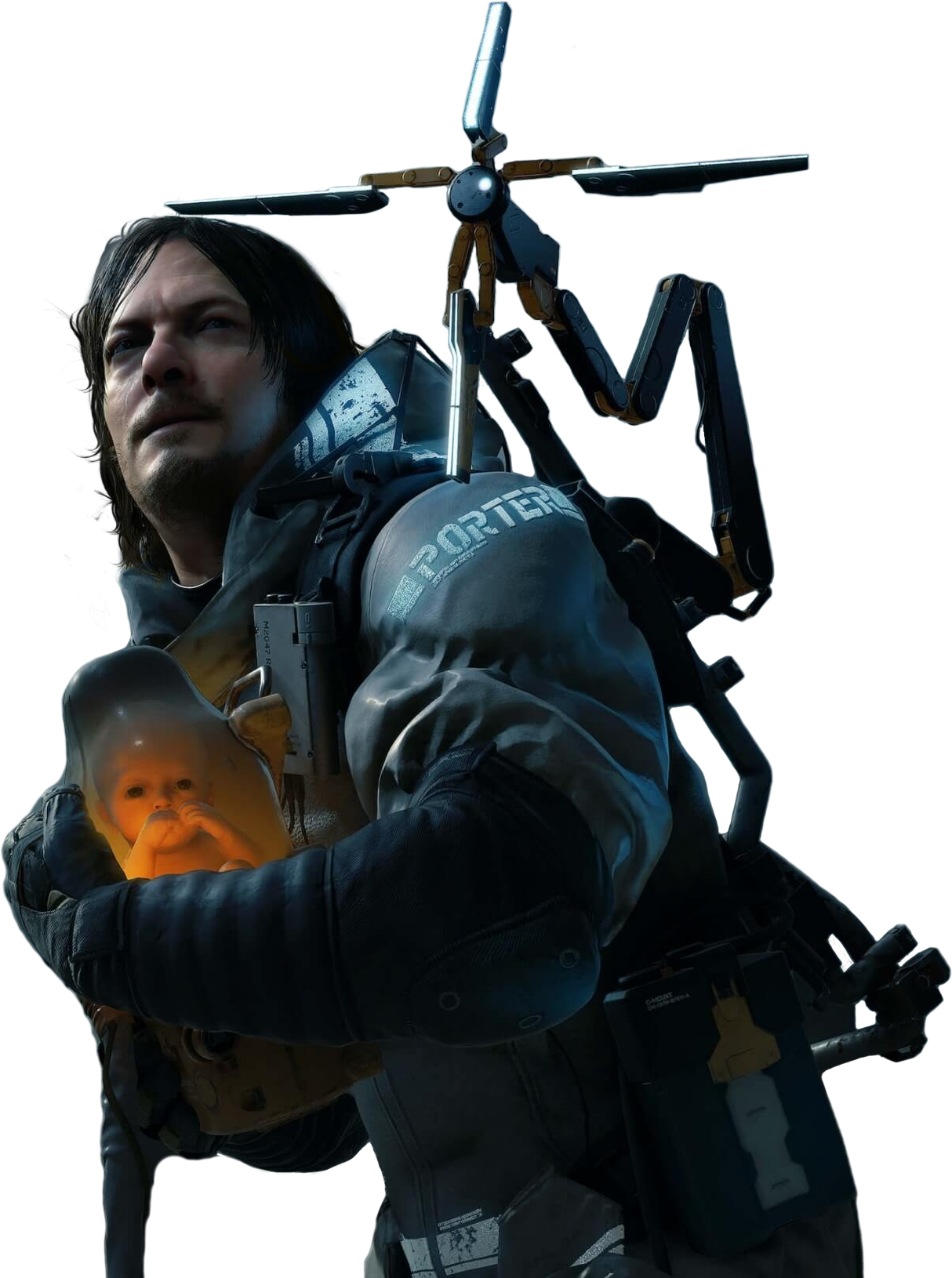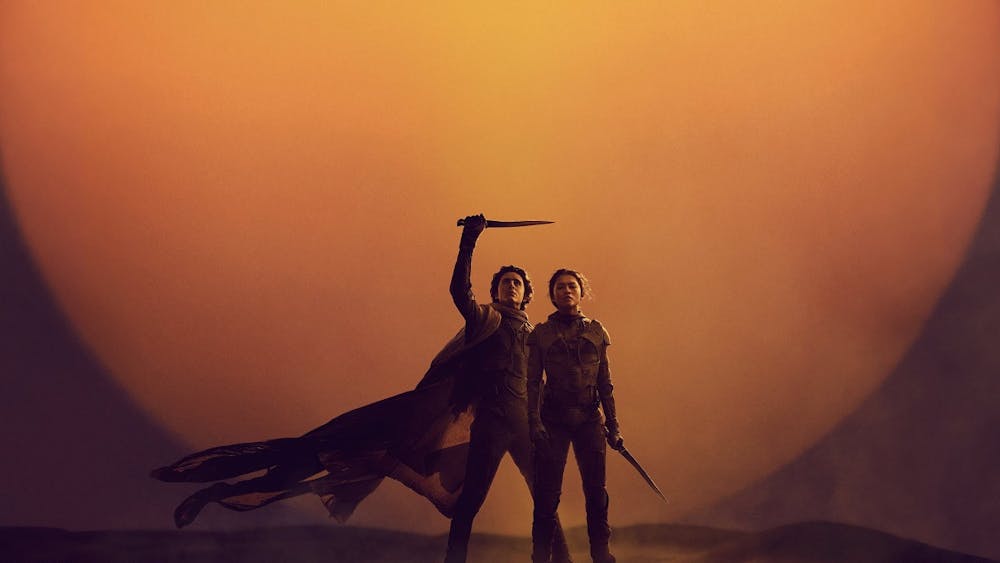The first game from Kojima Productions is a long trek through isolation
Ian Davino, Editor-in-Chief
Originally published November 27, 2019
Norman Reedus stars as Sam Bridges in Hideo Kojima’s new game “Death Stranding.”
I don’t think I can ever fully explain my thoughts on this game — at least not with words. Possibly with wild gestures, noises, a finger pointed at the screen as I say ‘look! Look!”
“Death Stranding” is one of the most divisive games in recent history. Having played it, this isn’t exactly surprising. Set in the United States after a deadly “extinction event,” civilization is divided — harsh, metallic shelters and cities juxtaposed against sprawling landscapes.
The main gameplay loop, rather than the traditional instant gratification of non-stop action, consists of long, charted walks through the desolate remains of the United States. This is the surface.
Below the surface is the journey before each destination. You play as Sam Porter Bridges, (fantastically portrayed by Norman Reedus) who delivers cargo to the remaining cities and bunkers dotted across America.
Each delivery begins in a terminal, with a simple instruction: here’s what you need to carry, here’s where it needs to go. The rest is up to you.
Every detail counts. The way you pack your cargo determines your balance: if all your weight is on the left, you’ll have to steady yourself constantly to avoid toppling over. Supplies like ladders, anchors, bridges and generators all add on to the weight; you’ll often have to weigh tools of your survival over cargo you need to deliver.
That’s all preparation before exploration. Brief moments of levity are sprinkled between Timefall showers: deadly rain that rapidly increases the aging process, and ghastly visions of BT’s (Beached Things) tar-like echoes of life that attempt to drag you to the underworld.
The game manages to combine meditative walks and grandiose, dramatic set pieces with relative ease, neither ever feeling out of place. The lull of the indie soundtrack rising after an exhausting trip up the mountains is a pure ecstasy no other game can capture.
As you make deliveries, you connect sections of the map to the “Chiral Network.” Once online, you can view the structures other players have built and the amount of “likes” they have.
The path you’ve made to your destination pave the way for other players. Not only do your deliveries connect the communities in game, but connect with other players online.
“Death Stranding” is a game about isolation. The survivors of the apocalyptic events that left the United States shattered are introverted, distant and broken; the story and gameplay reflect this in perfect harmony. Every delivery you make introduces a new character with a story to tell, ranging from brief vignettes to development through a series of missions.
There’s a sense of unrelenting hope in the optimistic goal of “Death Stranding.” That connections can be made, that despite everything that may face us, human beings will in the end find a way not only to survive, but thrive. This optimism never crosses the line into naivety. It’s acknowledged that the same tools that connect people can also drive them apart, and characters, ambitions, and goals are never two dimensional.
In an industry that praises cookie-cutter games that lack innovation, I honestly hope “Death Stranding” represents the future of video games. Making the bold choice, pushing the medium rather than remaining stagnant. “Death Stranding” is divisive. Good! Having a passionate, polished game that doesn’t necessarily capture every audience isn’t a bad thing. What it stands for more than makes up for its flaws.
It’s slow, strange, and oftentimes breathtakingly beautiful. “Death Stranding” isn’t for everyone — but it’s undeniably a game with heart.
![West Seattle High School’s (WSHS) Chinese program is closing down and teachers in the program are informed to transfer to a different high school. At WSHS, 475 both former and current students have signed a petition to help teacher Ying Yu continue her Chinese program. She shares that initially, the program offered only four classes with 90 students but with her initiatives, the program grew to be full-time with 154 students and 137 students on the waiting list. (Seattle Public Schools Board Meeting YouTube Channel: Seattle Schools Board Meeting May 8, 2024, [58:25])](https://ballardtalisman.org/wp-content/uploads/2024/06/Screenshot-2024-06-14-134038.png)
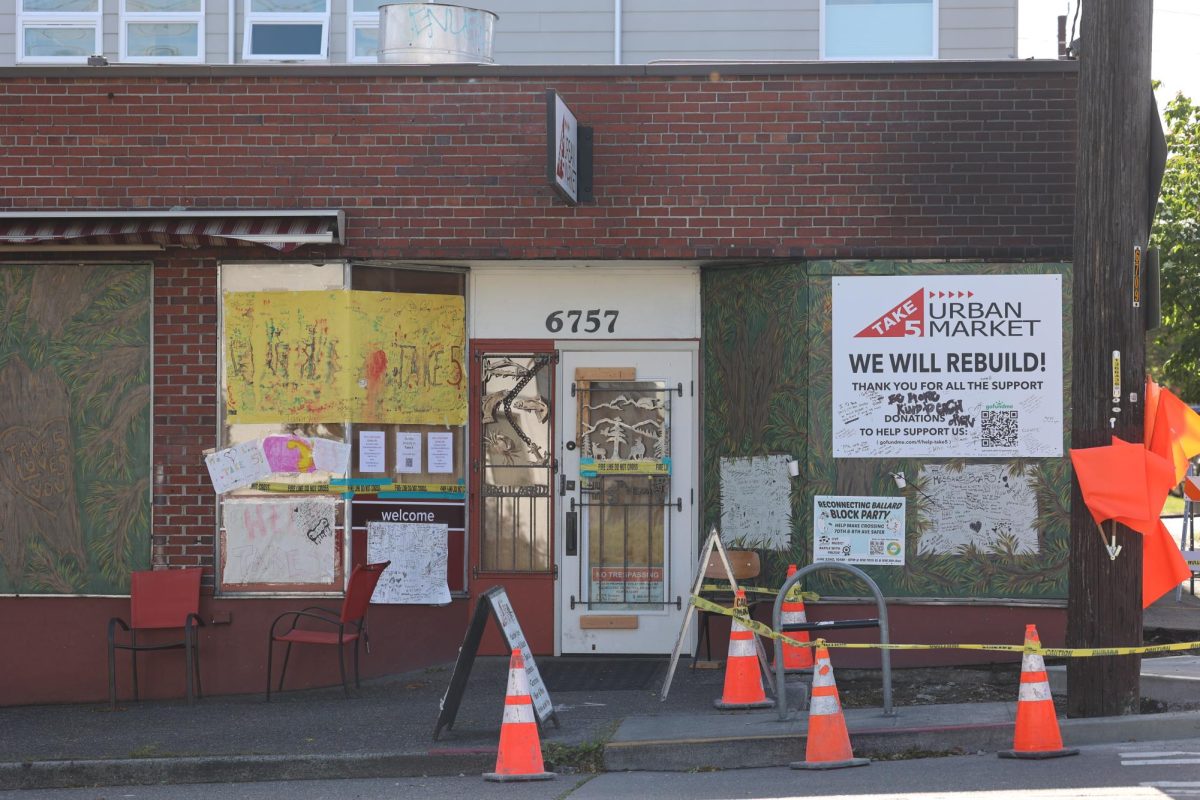

![“Link Crew is meant to be a way for [upperclassmen] to help ninth graders with the transition to high school,” Laura Lehni, language arts teacher, ASB advisor and Link coordinator, said](https://ballardtalisman.org/wp-content/uploads/2024/05/IMG_4601-1200x800.jpg)


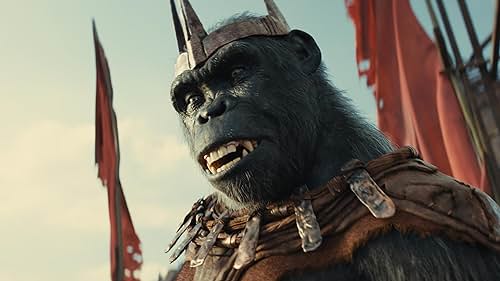
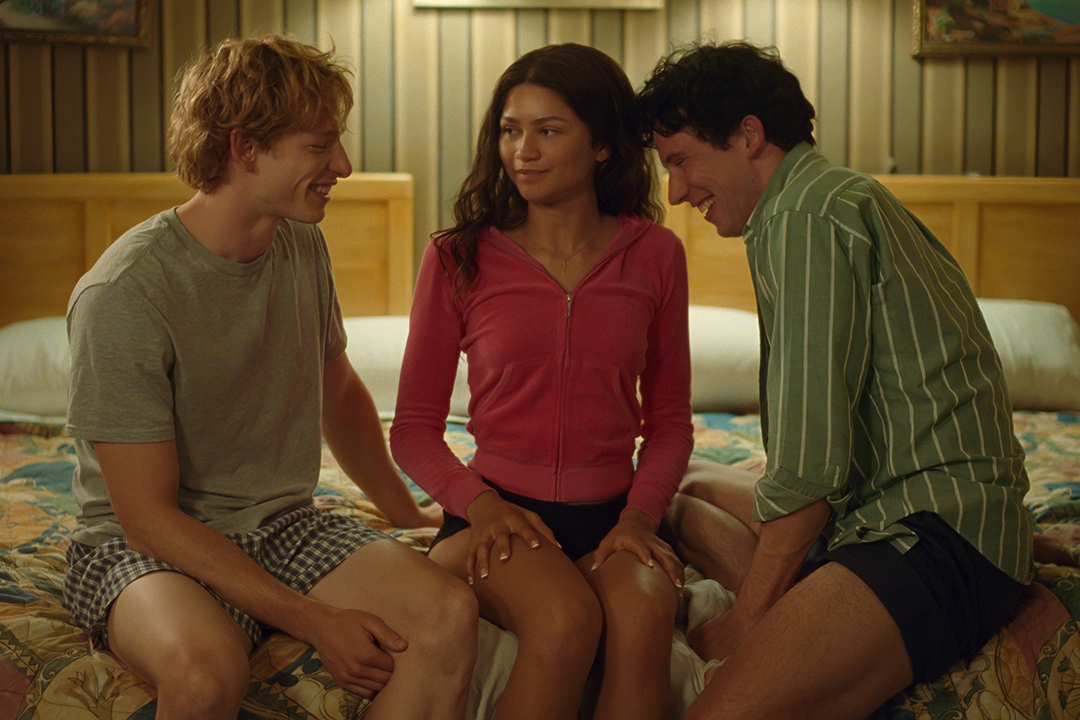






![Henry Willy [pictured left] taking the field with his teammates in a 10-11 loss vs. Saas.](https://ballardtalisman.org/wp-content/uploads/2024/05/IMG_2431.jpg)



